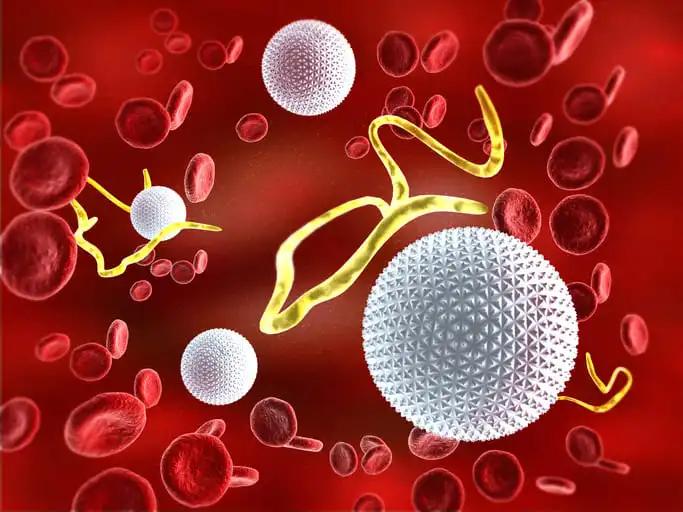KEY TAKEAWAYS
- The phase 3 NRG-GY018 trial evaluated the effectiveness of combining pembrolizumab with paclitaxel and carboplatin in extending PFS for advanced or recurrent endometrial cancer.
- Participants were randomly allocated to receive either pembrolizumab or a placebo alongside paclitaxel and carboplatin.
- The study demonstrated that adding pembrolizumab to chemotherapy proved beneficial in extending PFS, irrespective of mismatch repair status.
The phase 3 NRG-GY018 trial was conducted to determine if combining pembrolizumab with paclitaxel plus carboplatin would extend progression-free survival (PFS) among women with advanced or recurrent endometrial cancer.
The randomized, international study enrolled 816 women diagnosed with measurable stage III/stage IVA or measurable/nonmeasurable stage IVB recurrent endometrial cancer. The participants were randomized in a 1:1 ratio to receive either 200 mg intravenous pembrolizumab or a placebo every 3 weeks for six cycles, followed by up to 14 maintenance cycles of 400 mg pembrolizumab or placebo every 6 weeks, alongside paclitaxel and carboplatin. Eligible women undergoing previous adjuvant chemotherapy were allowed to join the trial if they had remained treatment-free for at least 12 months.
The researchers categorized the women into two groups based on the results of central mismatch repair (MMR) immunohistochemistry. The first group, known as the deficient-MMR (dMMR) cohort, included 225 women, while the second group, termed the proficient-MMR (pMMR) cohort, comprised 591 women.
The primary endpoint of the study was PFS within these two cohorts. Interim analyses were scheduled after reaching 84 or more deaths or instances of disease progression in the dMMR cohort and 196 events in the pMMR cohort.
The median follow-up period was 12 months for the dMMR cohort and 7.9 months for the pMMR cohort. The outcomes demonstrated that in the dMMR cohort, the median PFS was not reached in the pembrolizumab group compared to 7.6 months in the placebo group. The researchers also noted that the 12-month PFS rates for this group were 74% in the pembrolizumab and 38% in the placebo group.
In the pMMR cohort, the median PFS was 13.1 months in the pembrolizumab and 8.7 months in the placebo cohort.
The occurrence of grade 3 or higher adverse events (AEs) was greater among patients who received pembrolizumab compared to those who received a placebo in both the dMMR cohort (63.3% vs. 47.2%) and the pMMR cohort (55.1% vs. 45.3%). However, grade 3 or grade 4 adverse events with an incidence of 15% or higher were similar between the groups. No new safety concerns were identified.
The study reported that adding pembrolizumab to chemotherapy significantly prolonged the PFS for women with advanced or recurrent endometrial cancer. This benefit was observed regardless of the mismatch repair status, particularly among those who received the combination therapy as a first-line treatment for stage III to stage IV disease.
Clinical Trial: https://clinicaltrials.gov/study/NCT03914612
Eskander RN, et al. N Engl J Med. 2023;doi:10.0156/NEJMoa2302312.



